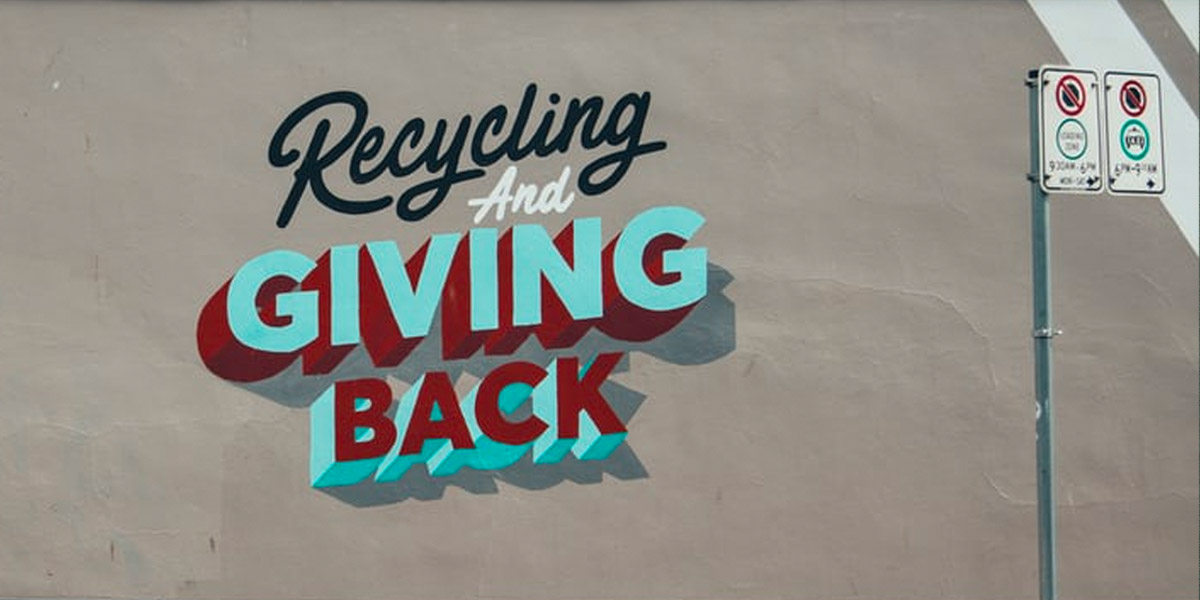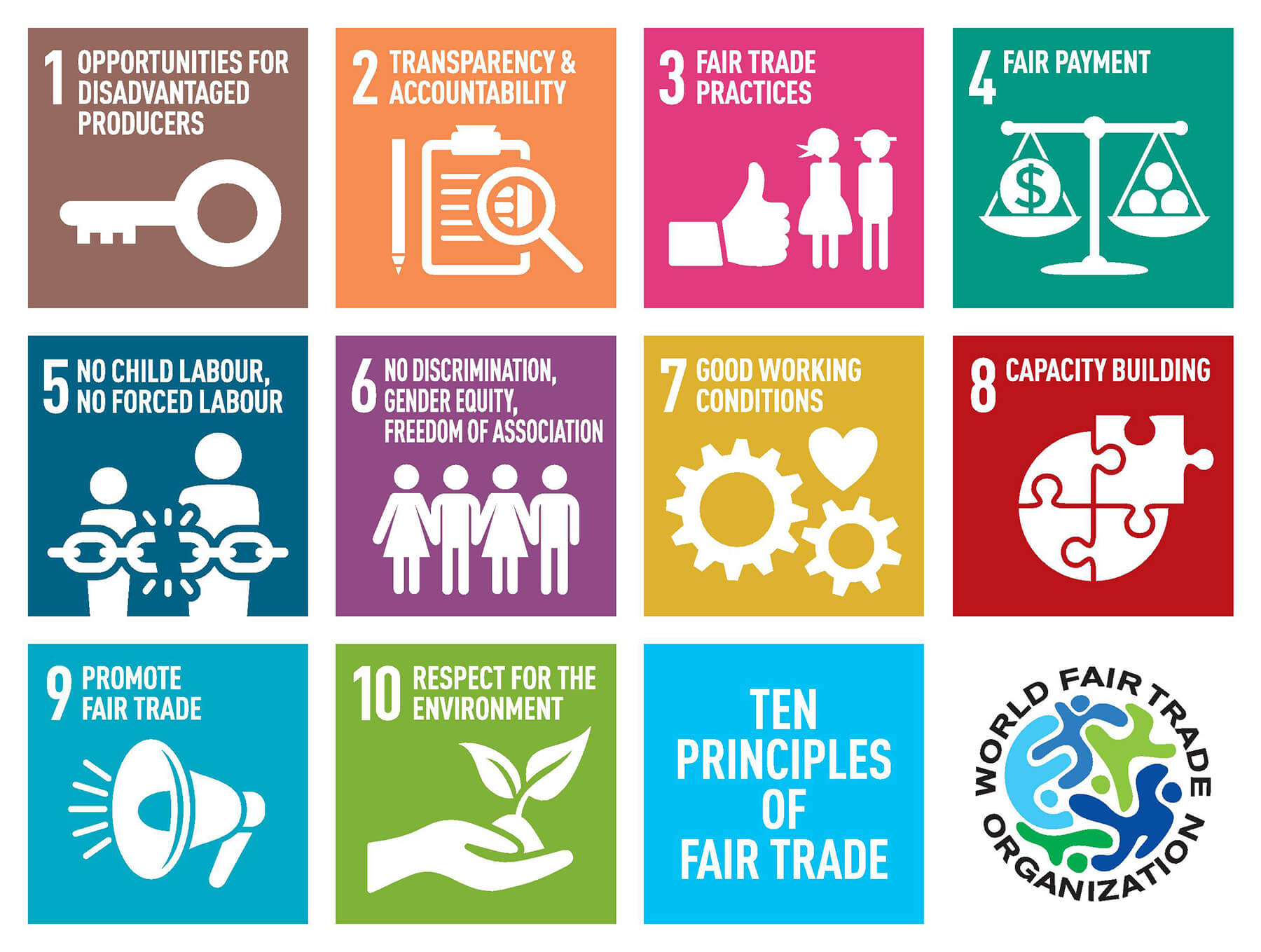
Socially irresponsible companies can no longer hide behind their damaging practices, as consumers quickly move their attention to other companies that have a more ethical approach. Furthermore, consumers now have social media platforms to expose unethical brands or contradictory marketing, putting extra responsibility on company operations.
Promoting your company’s ethical practices as a part of your marketing strategy to engage your audience and create awareness helps your business results and customer relations.
The Definition of an Ethical Brand
- Are morally correct
- Do not harm people, animals and the environment
- Contribute to society and public good in a responsible, positive, and sustainable way

What is Ethical Marketing?
Ethical marketing mixes basic marketing fundamentals with the added focus on social and environmental responsibility. It promotes products and services by highlighting the ethical standards within their sourcing, manufacturing and supplying processes to benefit brand identity and customer relations through shared values.
Ethical marketing can create trust between a business and its audience. It delivers a message that business success is not greater than those involved in the process, its customers and the environment.
Essentially, ethical marketing is bringing morals back into the marketing world, where they have lacked in the quest for the almighty dollar for too long.
Ten Principles of the World Fair Trade Organisation
 Image Credit: WFTO
Image Credit: WFTO
- Opportunities for disadvantaged producers
- Transparency and accountability
- Fairtrade practices
- Fair payment
- No child labour, no forced labour
- Commitment to non-discrimination, gender equity, freedom of association
- Good working conditions
- Capacity building
- Promote fair trade
- Respect for the environment
The Vital Rise of Ethical Brands
It is no surprise that we as a society over-consume. Businesses market their products and services to attract, entice and sell, with little thought of the short term impact and long term consequences to social values and environmental sustainability. Consumers have fallen into the marketing trap, looking beyond personal values to benefit their lives with a product or service.
However, as the world confronts extreme social and environmental challenges, businesses and consumers are educating themselves and changing old ways. They are becoming aware that their actions have a ripple effect on how the world operates, and there is a need to minimise their impact.
Ethical brands create positivity within the marketing world, setting an example that we all can play our part to make a change. We now know companies can design, manufacture, and supply high-quality products and services ethically. These actions encourage others to follow suit and allow consumers to put their money into a brand that meets their values.
Seventeen UN Global Compact Sustainable Development Goals
 Image Credit: UN Global Impact
Image Credit: UN Global Impact

Marketing Ethical Brands
Marketing ethical brands are not so different to standard marketing campaigns. The platforms to create brand exposure are the same, with online and offline marketing playing the ever-important role to spread the word.
Similar techniques are still used to draw an audience’s attention and entice sales, with website SEO, strategic signage and social media presence equally significant in ethical marketing.
The difference is the ethical purpose, values and messaging, which must be clear and not contradict itself. Content should reflect your moral strengths and promote how you are actively running your ethical brand.
If you preach your ethical brand, you need to live by it. Any brand that is seen to contradict its ethical values will be exposed, leading to significant brand damage.
Eight Steps to Support Your Ethical Brand Marketing
1. Find Your Ethical Purpose
All companies looking to create an ethical brand must have an ethical purpose. However, saying you want to be ethical is not enough, as your audience will soon recognise you do not have a clear moral message.
Examples of ethical purposes:
- Reducing environmental impact
- Supporting grassroots organisations
- Advocating for systemic change
- Promoting conscious consumerism
- Encouraging regenerative practices
2. Define Your Ethical Values
Defining your ethical values allows you to fine-tune your marketing approach and intimately engage with your audience. For example, a broad moral stand is okay but can seem to be a token. In contrast, a more specific vision helps to incorporate your ethical values into your marketing strategy.
Examples of ethical values:
- Gender equality
- 100% fairtrade
- Equal opportunity
- Zero waste
- Cruelty-free
- Green energy
3. Guarantee Ethical Practices
It is all good to get on the ethical bandwagon, but you must guarantee you practice what you preach. If there is any grey area, it will be exposed, causing significant brand damage, so make sure you tick all the boxes before going down the ethical marketing route.
Examples of ethical practices:
- Choose materials wisely – recycled, re-usable, non-toxic, organic
- Minimise packaging material and waste
- Ensure safe and respectful working conditions
- Protect animals and the environment – carbon reduction, green energy, no animal testing
4. Ethically Conscious from Start to Finish
Rightly or wrongly, people will start picking holes in your ethical marketing. For example, even if your ethical brand’s message promotes equal opportunity, consumers may question how the factory was powered, your employees’ hourly rate, and your recycling efforts. You don’t have to be the world’s best in all areas, but you must ensure you are ethically conscious from start to finish.
Examples of ethically conscious decisions:
- Origin of materials
- Energy-efficient operation
- Recycling and waste management
- Competitive wages
- Employee benefits
5. Verify Your Supply Chain and Distribution
As an ethical brand, you need to be wary of the companies you deal with and how they run their business, especially in your supply chain and distribution. They cannot go against your ethical values or operate irresponsibly as it reflects poorly on your ethical brand.
Examples of ethical verification:
- Screen suppliers
- Follow fair trade policies
- Reduce transport distances and frequencies
- Reduce waste materials and packaging
6. Authentic and Transparent Communication
Your ethical marketing needs to be done with authentic and transparent communication. Gone are the days where companies can advertise brand benefits with no solid evidence or repercussions. The tricks and white lies don’t work in ethical marketing, and if you dare to try it, you will find out the hard way.
Examples of authentic and transparent communication:
- Use straightforward language
- Do not lie, create false ideas or trick consumers
- Be transparent about your company’s activities
- Respectful and sensitive messaging
- Deliver on what you promise
7. Ensure Employees Rights
Your employees have a significant impact on your ethical brand, meaning they should also be respected and valued. Ensuring employee rights are implemented and upheld builds good ethical values within your business, naturally flowing into the public’s eye.
Examples of employee rights:
- Gender equity
- No discrimination – nationality, race, religious beliefs, class, political
- Fair salaries
- Professional growth of employees
- Good working conditions – safety, work-life balance, stress management
- Zero-tolerance policies – corruption, harassment, discrimination
8. Strive to Give Back to Communities
A challenge of marketing ethical brands is that many believe the business should give something for nothing. The reality is that you are still a business with overheads, and you need to make sustainable income to survive. However, you can and should strive to give back in some form to the community, and it doesn’t necessarily have to be on a sizeable financial scale.
Examples to give back to the community:
- Financial contribution to NGOs
- Employee volunteer programmes
- Goods and services contribution
- Sponsoring local events
- Supporting conservation
- Buy one give one business model
- Donate a percentage of profits
- Reinvest profits to achieve ethical objectives
Ready to create an ethical brand strategy? Book a free coffee chat to get started.


